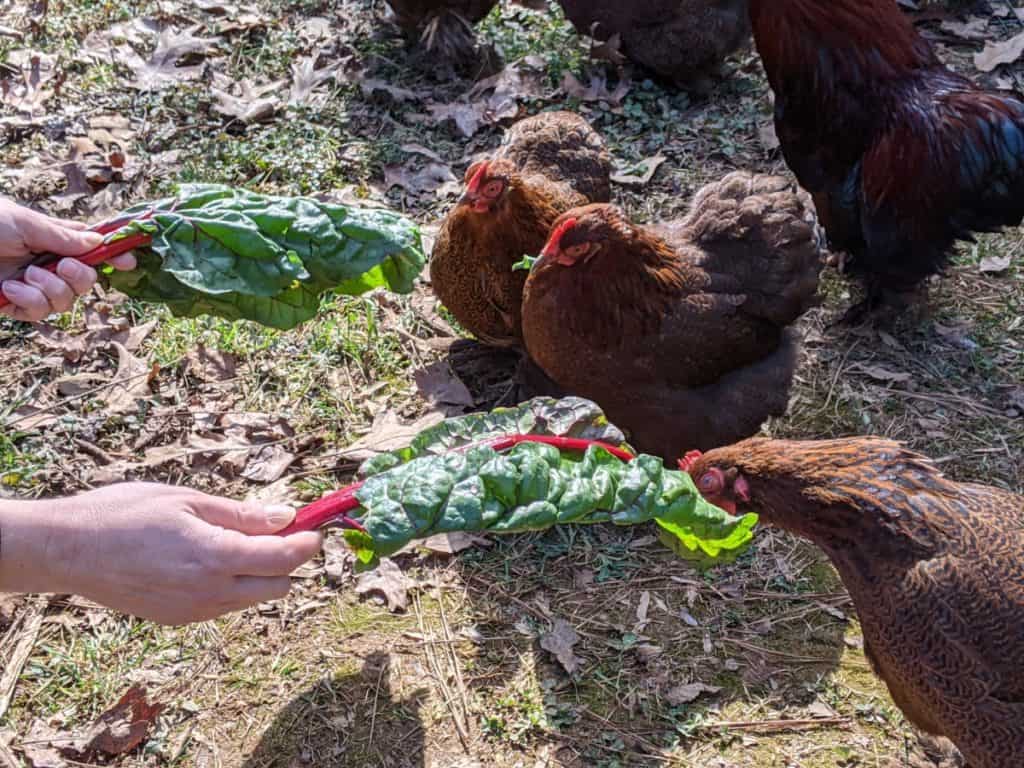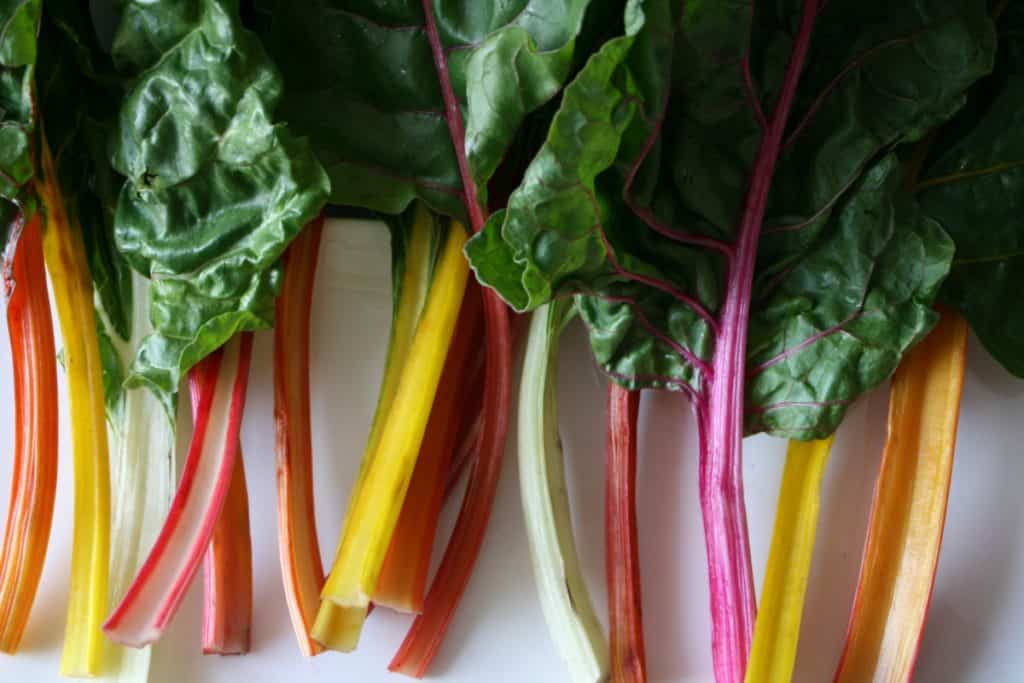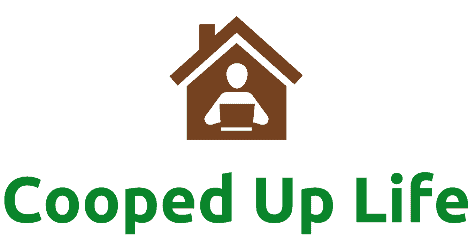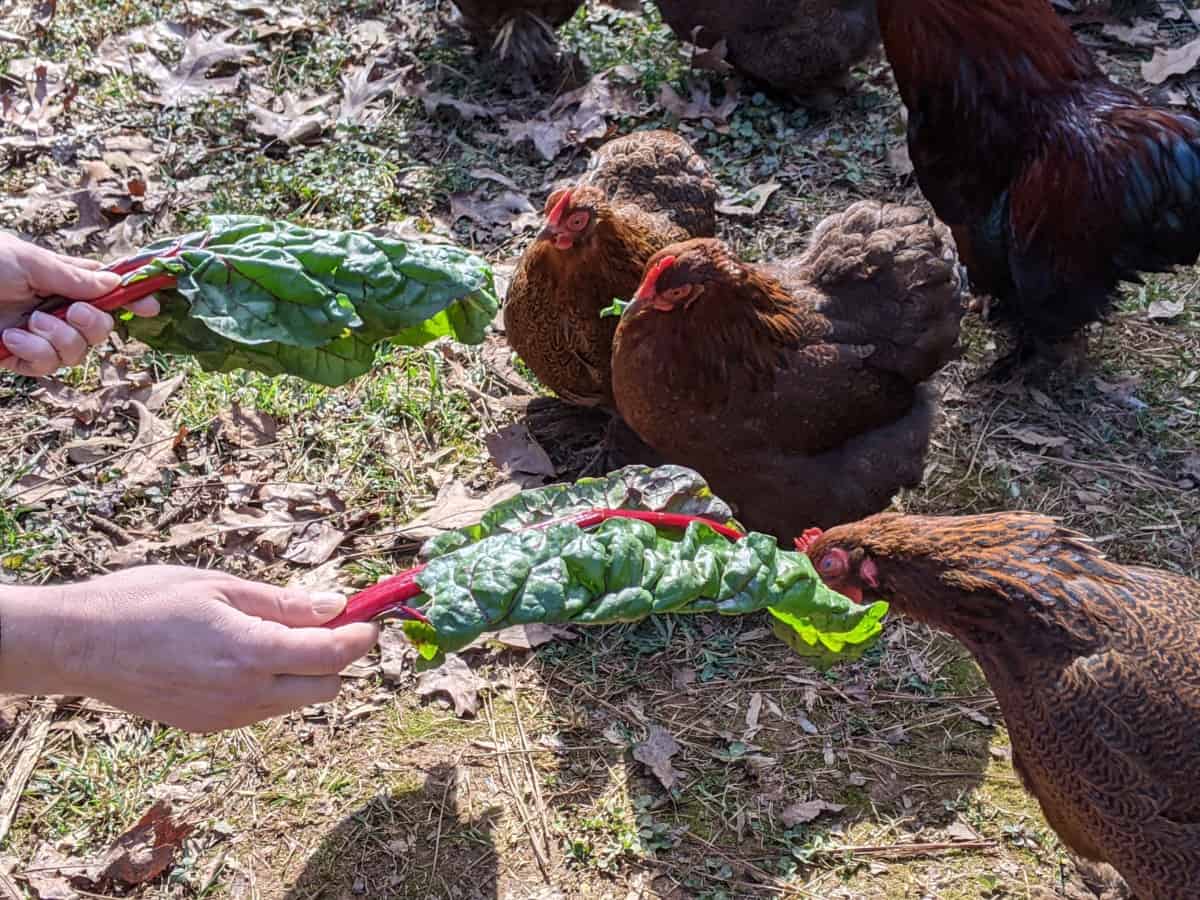
Chickens are omnivores and enjoy eating many types of leafy green vegetables. Every flock is different and some prefer certain leafy greens over others.
Your backyard chickens might like differet vegetables such as broccoli, asparagus cabbage, or the leafy Swiss chard.
As backyard chicken keepers you should try out different veggies for a treat and see which ones they like best.
Can chickens eat Swiss chard? Yes, Swiss chard is a part of the amaranth family (Amaranthaceae) of plants. Swiss chard contains nutrients that are beneficial to chickens such as vitamin E and folate. Only feed it to your chickens in limited quantities as it contains large amounts of Oxalic acid.
Too much Oxalic acid could potentially inhibit calcium absorption and decrease the calcium found in the eggshells of laying hens.
Don’t worry too much about Oxalic acid though. A study found here states that no significant changes in eggshell quality were found when giving laying hens extra doses of Oxalic acid in small amounts.
Swiss chard is one of the best greens for chickens. I often pick it straight from my vegetable garden and give it to my chickens. They enjoy this occasional treat and it’s one of their favorite veggies.
Nutritional Benefits of feeding Swiss Chard to Chickens
Swiss chard has many nutrients, vitamins, and minerals that are beneficial for backyard chickens. My chickens love eating the tasty leaves but are not big fans of the stems.
Swiss chard contains a range of vitamins and nutrients. These include vitamin A, vitamin K, vitamin C, vitamin E, calcium, magnesium, phosphorus, potassium, folate, and iron.
Phosphorus
Phosphorus aids in creating good eggshells for your laying hens. It helps prevent rickets in your chickens and is helpful for hatchability. Most egg layers need 4-5 grams of calcium a day to lay eggs.
Calcium
Swiss chard is a source of calcium. Calcium is needed to build strong eggshells for your laying hens. Without the right amount of calcium, your hen could stop laying eggs completely.
You will have to boil the Swiss chard if you want your chickens to get any calcium benefits. This is because the Oxalic acid found in the Swiss chard interferes with the absorption of calcium.
Boiling the Swiss chard before feeding it to your chickens will reduce the amount of Oxalic acid by up to 90%. If you don’t care about the calcium content feed it to them raw in small amounts of course.
Magnesium
Magnesium plays an important role in cell metabolism and bone development in chickens. A good feed will contain magnesium but without it, any baby chicks you have will die quickly.
Potassium
When your chickens are outside in the hot weather a little extra potassium is very helpful. Your backyard chickens will drink more water and experience less heat stress.
This helps maintain egg production for your morning omelet.
Folate
Folate aids in improved feather growth, egg production, and blood formation.
Iron
Your backyard chickens need Iron to maintain a strong immune system and avoid anemia.
Vitamin K
Vitamin K is important should your chicken sustain and injury and start to bleed. This is because a clot may not form if your backyard chicken does not have enough vitamin K in its diet.
Vitamin E
Studies show that vitamin E helps in growth and reproduction for chickens. This important vitamin also aids in protection against Newcastle disease and crazy chick disease.
Vitamin A
You want your chickens to get the right amount of vitamin A in their diet which a good layer feed will do. Swiss chard contains vitamin A as well. This helps maintain healthy mucous producing glands in your flock.
The inside of the eyelid, nose, and esophagus are some glands that need vitamin A to function normally.
Below is a video of my chickens eating swiss chard.
How to Feed Your Chickens Swiss Chard?
You can pick the Swiss chard, wash it and feed it to them raw. Another option is to chop the Swiss chard leaves and stems into small pieces making them easier for your backyard chickens to consume.
A third option is to boil the Swiss chard for a few minutes. This will soften the steam and leaves. You can then cut them up into smaller pieces that your chickens will enjoy eating.
Boiling Swiss chard will also reduce the amount of oxalic acid by up to 90%.
Can Chickens Eat Swiss Chard Stems?
Chickens can eat Swiss chard stems. They are a bit tough and fibrous so you will need to cut them up into very small pieces if you expect your chickens to eat them.
My flock eats the leaves and does not touch the stems but your flock could be different.
Can Chickens Eat Cooked Swiss Chard?
Yes, chickens can eat cooked Swiss chard. Cooking the stems makes them a bit softer and easier to consume. You may also see nice healthy egg yolks after feeding your chickens chard.

Can Chickens Eat Raw Swiss Chard?
Yes, chickens can eat raw Swiss chard. It is my preferred way to feed it to my chickens. I usually toss them a few leaves into their run and watch them enjoy the tasty green treat.
Is Any Part of Swiss Chard Poisonous for Chickens?
No, there is no part of Swiss chard that is poisonous for chickens. Swiss chard belongs to the amaranth family of plants and contains many important nutrients that are beneficial to chickens.
Final Thoughts
Swiss chard or any vegetable can not replace a good chicken feed. Swiss chard is a good vegetable to give your chickens a little variety in their diet while entertaining you at the same time.
Don’t give them large amounts due to the high Oxalic acid content. Obviously, a little Swiss chard here and there is fine as research has shown.

